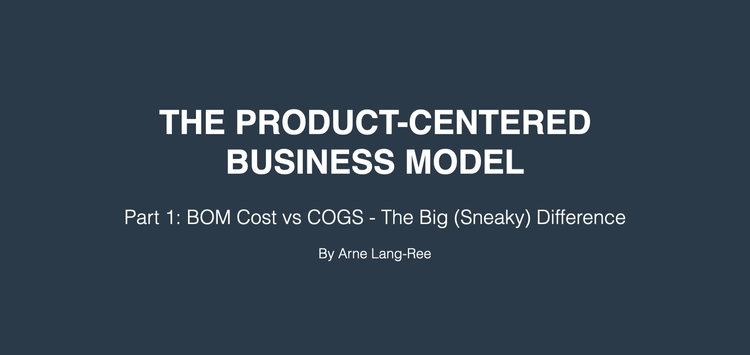All startups need to think about intellectual property at some point. Figuring out when can be challenging. Intellectual property is a complex area of law, and different IP assets require different considerations. Two common IP assets that startups need to consider are trademarks and patents. Copyrights and trade secrets are also important, but beyond the scope of the discussion below. We can save that for another time.
My name is Sean Lynch, and I am a partner at the intellectual property law firm Lynch LLP. We regularly develop IP portfolios for startups. Here's what you should know about trademarks and patents.
Trademarks? Patents? Both?
Figuring out what exactly you need is your first priority. The only way to really do this right is to talk to a lawyer, but you can go into that conversation armed with some knowledge.
Trademarks are source identifiers—your branding. They let your customers know they are buying your products or your services. Not every business needs a patent, but every business needs a trademark. What are you calling your startup? That's probably going to be your branding, at least at the start. Trademarks can protect logos, slogans, and words and prevent others from using confusingly similar logos, slogans, and words to your own.
Patents, on the other hand, protect inventions. They grant the inventor the exclusive right to make, use, sell, and offer to sell their invention for a certain period, typically 20 years from the date of filing. This exclusivity can offer competitive advantage over others in the market, attract investment by demonstrating innovative technology, and generate revenue through licensing to other companies. Patents, when they may be available, are a critical aspect of intellectual property and can be a significant asset for startups and established businesses alike.
File Early, and File Often
So at what point should you start looking at protecting your IP? File early, and file often. That's the mantra we want our clients to internalize. In a perfect world, businesses have unlimited funds and can pursue legal protection for every IP asset as early as possible. But that's not reality for most businesses. An attorney can help you think about how to prioritize protection for your inventions and trademarks consistent with your business strategy.
Let's start with trademarks.
So you've started a business. You’ve hopefully formed a business entity, obtained bank accounts, and are prepared to do business. You’ve thought about what name you’ll operate under. The first misconception I'll address is that your business name and your brand name must match. Many startups go into this process thinking their business name is what they are going to use to sell products or services, but that doesn't need to be true. Before you start using a name in commerce, it’s a good idea to make sure you haven’t settled on a name that might confuse potential customers into thinking you’re another company. If you don't put in the effort to clear the name first, there's a chance you may need to rebrand anyway.
So when should you talk to a lawyer? Before you settle on your branding—the earlier the better. This is especially true if you need to make investments into your brand within the first year of forming a company. For example, if you need to print product labels or packaging, you're going to need to apply your branding. And if you pick a brand you like and invest into that brand without first clearing it, you may be forced to rebrand later when it's really inconvenient (and possibly expensive) instead of changing gears early on, before you’ve invested money into your brand. So as you're contemplating what your branding will be, it's time to talk to a lawyer. A trademark attorney can give you advice on how to maximize potential brand protection, and they can run an availability search to make sure you don't spin your wheels. Spending money on that process early saves you money down the road.
The same logic applies to building a website and buying a domain. If you want your domain to match your branding, talk to a lawyer first. Talk to your trademark attorney, nail down your branding, file a trademark registration application, build your website and begin building the brand.
What about patents?
Patents protect inventions and may be important for companies developing innovative new products. When to file a patent depends on several factors, including your launch schedule, when you need to disclose an invention publicly, how far into development you are, and so on. Most important, though: if you are going to file a patent application, the time to file is before you share any details about your invention to the public or sell or offer to sell your invention.
Public disclosure for patent purposes can include communications, displays, sales, or uses of an invention accessible to the public. This can include publications, lectures, trade shows, or even putting a product up for sale (even if you don't sell it). Sharing details about an invention on social media, such as Instagram, could be considered public disclosure. Once an invention is publicly disclosed, it may start the clock on a one-year grace period in the United States within which a patent application must be filed to avoid losing patent rights. In many other countries, public disclosure before filing can forfeit patent rights altogether.
To elaborate on the grace period: In the United States, even if you do disclose your invention publicly before you file a patent, you can still file within one year of that public disclosure. Do not rely on the grace period if you don’t have to. In a best case, your prior disclosure is no barrier. In a worst case, an examiner finds your disclosure online and cites it against your patent, and you have to spend time and money establishing that the disclosure originated from you and should not be considered prior art. In places like Europe where there is no grace period, your invention will be public domain.
The bottom line is that filing your patent application timely is important to protect invention rights. The type of patent application to file (utility, provisional, or design) is something an attorney can help you with.
This post is provided for general information purposes only and may not be relied upon as legal advice. This post may be considered an advertisement for legal services. Sean Lynch is a licensed lawyer in California and before the USPTO and is responsible for this content. You can reach Sean at contact at lynchllp.com.
Sean Lynch is a partner at Lynch LLP, where he specializes in intellectual property law, particularly in patent and trademark prosecution. He has extensive experience in prosecuting patents and trademarks and handling intellectual property enforcement matters.
Lynch LLP, the intellectual property and business law firm, is located in Southern California, with offices in Los Angeles, Orange County, Riverside, and San Diego. The firm's headquarters is in Los Angeles.
More Insights
Interested in learning more about what it’s like to collaborate with Spanner?







